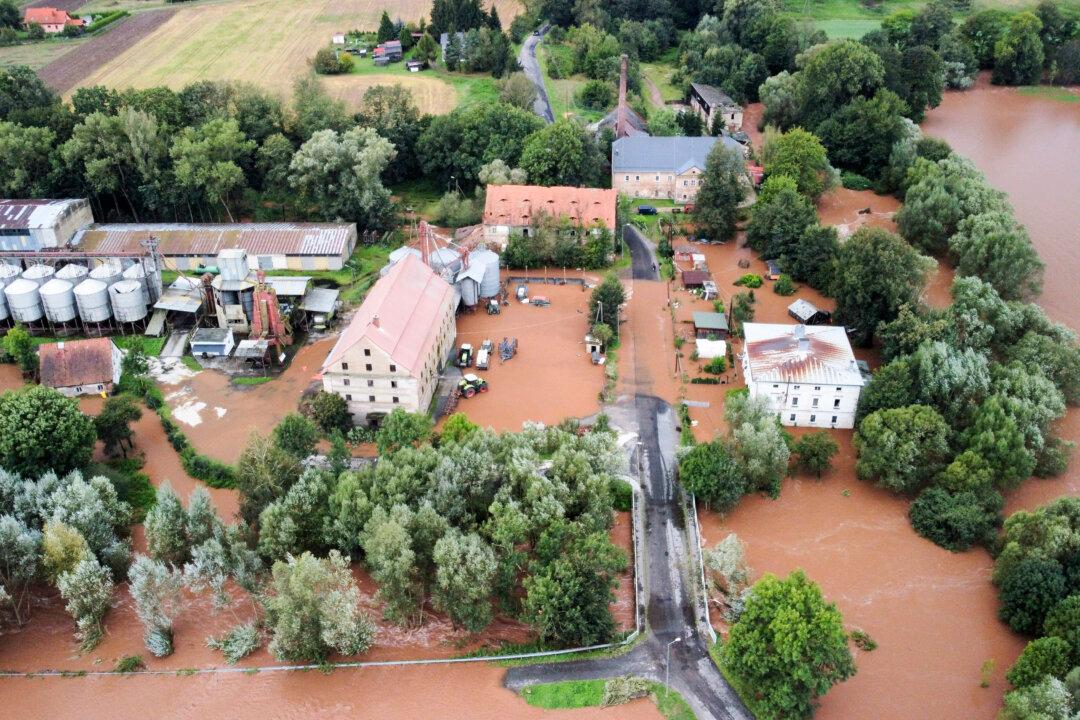Flooding across central Europe has claimed the lives of at least 18 people, prompting some countries to declare a state of natural disaster and deploy troops.
Since Sept. 13, Storm Boris has caused rivers to swell across Central and Eastern Europe, including in Romania, Poland, the Czech Republic, Slovakia, and Hungary.





